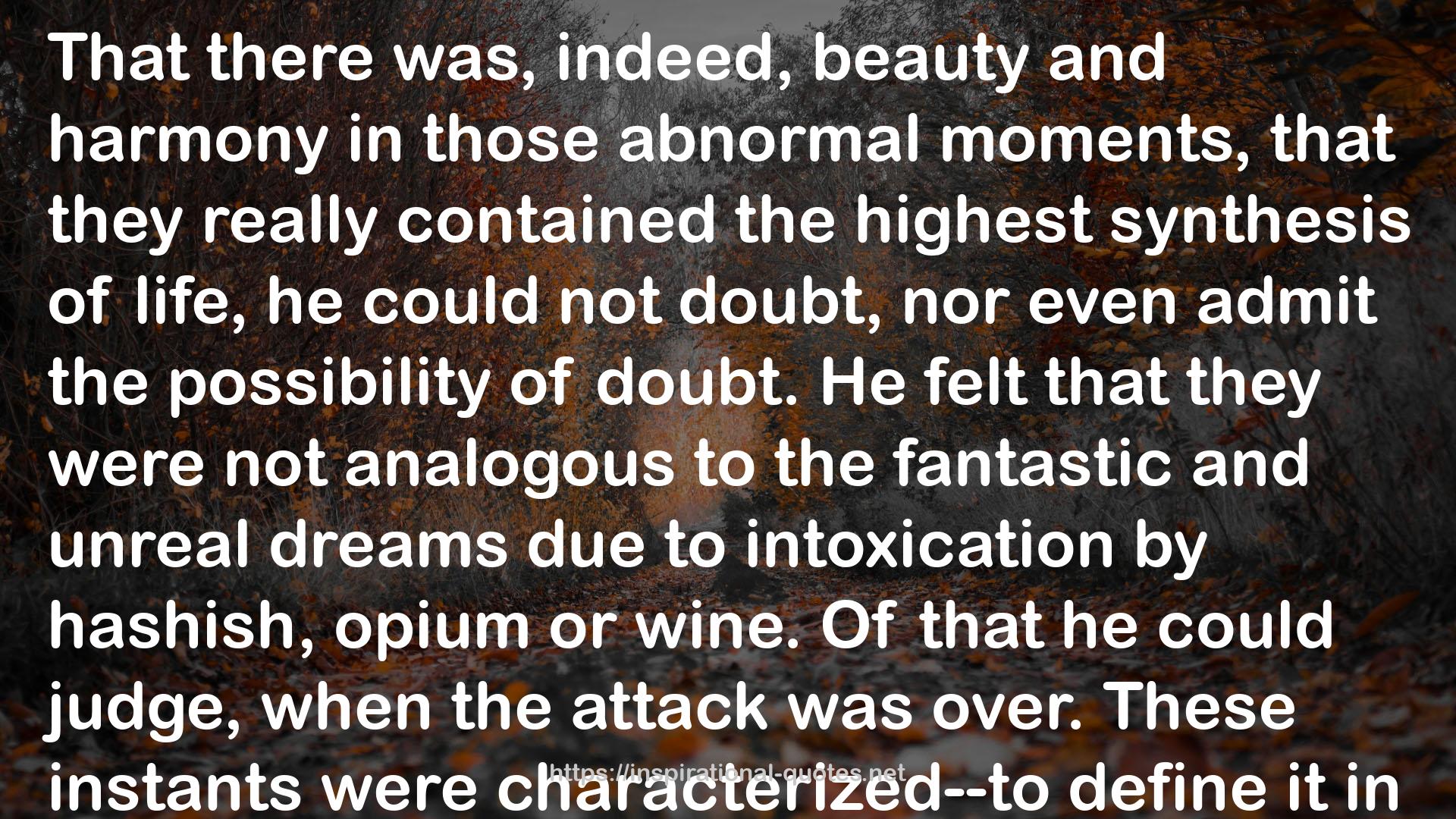" That there was, indeed, beauty and harmony in those abnormal moments, that they really contained the highest synthesis of life, he could not doubt, nor even admit the possibility of doubt. He felt that they were not analogous to the fantastic and unreal dreams due to intoxication by hashish, opium or wine. Of that he could judge, when the attack was over. These instants were characterized--to define it in a word--by an intense quickening of the sense of personality. Since, in the last conscious moment preceding the attack, he could say to himself, with full understanding of his words: "I would give my whole life for this one instant," then doubtless to him it really was worth a lifetime. For the rest, he thought the dialectical part of his argument of little worth; he saw only too clearly that the result of these ecstatic moments was stupefaction, mental darkness, idiocy. No argument was possible on that point. His conclusion, his estimate of the "moment," doubtless contained some error, yet the reality of the sensation troubled him. What's more unanswerable than a fact? And this fact had occurred. The prince had confessed unreservedly to himself that the feeling of intense beatitude in that crowded moment made the moment worth a lifetime. "
― Fyodor Dostoevsky , The Idiot
